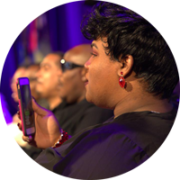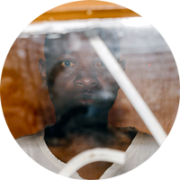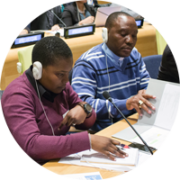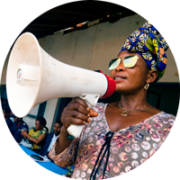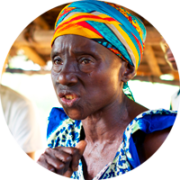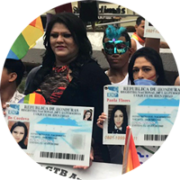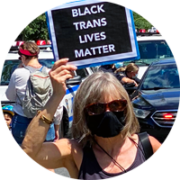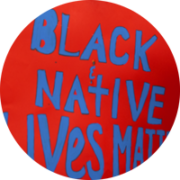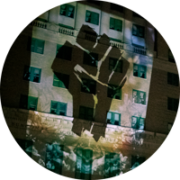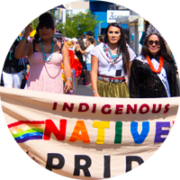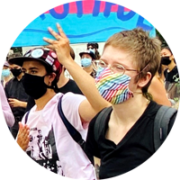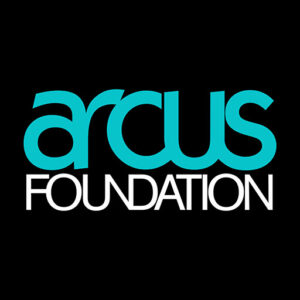In so many ways, the world has shifted dramatically since the start of the pandemic. But in fundamental ways, our approach to achieving lived and legal equality for LGBTQ Southerners has remained steady. Toggling between rapid-response work and long-haul strategies is the nature of organizing for social justice in the South.
Our work has always started with listening closely to what LGBTQ Southerners are saying about their lives, their needs, and their dreams. Those priorities change over time, and they’re particularly dynamic in times of crisis. From the moment we launched the Campaign for Southern Equality in 2011, we have focused on creating a nimble organization that understands change as part of our work.
Since early March, we have been responding to the global COVID-19 pandemic, which has had a nearly inconceivable health and economic impact across the South. And in June, we again shifted to respond to the national crisis about racial justice, a long-overdue global reckoning.
Concretely, this has meant:
- Moving more than $200,000 in emergency funds to people and grassroots groups
- Offering more than 40 webinars to reach hundreds of LGBTQ Southerners with resources, information, entertainment, and space for community in this time of strange social dislocation
- Marching in #BlackLivesMatter protests or supporting protesters in North Carolina, South Carolina, and Georgia
- Supporting about a dozen grassroots organizing projects led by Black LGBTQ Southerners through a special grant funding round
- Working with our Southern Equality Studios community of artists to support public art projects that respond to this historic moment
Being queer and doing justice work in the South means that rapid-response efforts are all but required for operation: In just the past few years we’ve been thrust into battle against anti-LGBTQ political attacks like North Carolina’s HB2 or Mississippi’s HB1523; we’ve partnered with organizations to resist ICE raids in North Carolina; we’ve leveraged court victories as tools for change. The year 2020 on its own has felt like a months-long rapid-response campaign, requiring a quick pivot into formation as we focused on moving funding quickly to people and organizers; marching in the streets and supporting direct action with our legal team; and supporting mutual-aid efforts. At the core of all this remains a commitment to listen to those most impacted and follow their leadership.
Crisis often lifts a veil, exposing realities that we face every day, under the surface. So it is with COVID-19 and the South, a region plagued by long-standing structural inequities. Many states in the South are dramatically unequipped to mount the massive public-health and social-services response that this pandemic has demanded. And now, as we head into the summer months, we see how COVID-19 has disproportionately impacted people of color and how rates of the virus are reaching alarming new levels across the region, a result of many southern states’ inadequate policy responses.
The ongoing crisis of racial injustice has also exposed deep fault lines that can be traced to our country’s roots. The legacy of the Confederacy and of the Jim Crow era haunt the South, and the modern metastases of racism and white supremacy proliferate. Dismantling the many ways our lives are entangled daily in the tentacles of these scourges is a project that must permeate every sphere of our lives and every sector of our society. Broken systems must be abandoned and reimagined entirely. Some systems can be reformed, but the reforms must be bold and decisive. Contributing to this work is a core part of the Campaign for Southern Equality’s charge as we work each day to help create a South where all of us can thrive.
This is long-haul work and it requires profound change. It’s about relationships, yes. It’s about the choices individuals make—the ways we are all capable of change and all need to change. But it’s also about capital, about resources, about institutions. It’s about the way public space is occupied and how we can all be safe in public life.
At times, this season has felt overwhelming. It has felt like an assault on the body and spirit. But there is also a relief in its clarity: Injustices are nakedly exposed, and so too are courage, vision, and resistance. In our families, within our staff, in community, we are talking about necessary things that truly matter. And every idea is on the table. The safety nets that should be ever present are being hastily stitched and unfurled—and it will fall to us to ensure that they stay in place and become stronger. Racism is being named as the emergency that it is and has always been—and it falls to us to ensure that this sense of urgency remains and that we act from this basis.
Hope is not all that I feel. But I do feel a resolved sense of hopefulness, along with grief and fear and dueling instincts of both urgency and patience. Hope because of how people are extending themselves for others, how our moral imaginations are engaged, and how so many people’s better angels are visible right now.
I’m hopeful that decades from now we will look back on the arc of our lives and know that 2020 was a year that propelled us toward true change, that we will look back and know that we showed up in every single way we could. That’s what keeps me going and it’s what keeps us going at the Campaign for Southern Equality. ▅


